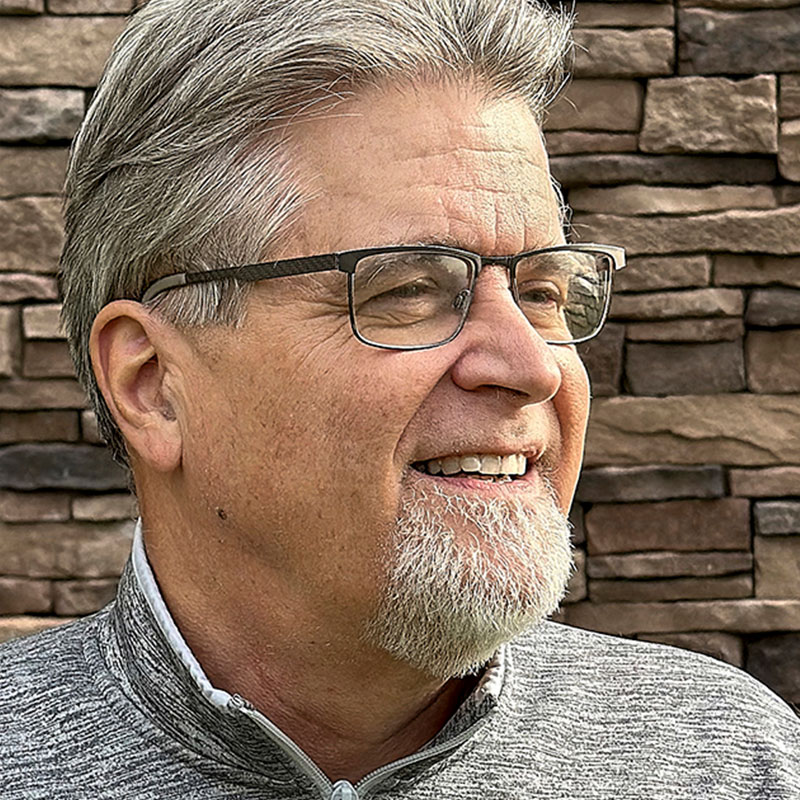
A recently published book has created quite a buzz around faith deconstruction. It’s The Deconstruction of Christianity: What It Is, Why It’s Dangerous, and How to Respond by Alisa Childers and Tim Barnett. The buzz is from avid supporters of the book like Tom Gilson in his article, ‘Deconstructing’ Faith: The Truth Behind the Movement, commentary and support from Sean McDowell, or critics of the book like me who have reviewed it. For example, my review here, my podcast with others here, Tom Oord’s review here, and Tim Whitaker’s podcast here.
Because these deconstruction critics continue to horribly mispresent faith deconstruction, more needs to be said. Here’s the nine lies that deconstruction critics tell that I’ve noticed. I can’t know for sure if these are intentional lies or just sloppy assessments, but, don’t be fooled, they are lies nonetheless:
1 – Faith deconstruction is a threat to Christian belief and trust in Jesus
No, it’s not. The overwhelming majority of people who deconstruct evangelical or fundamentalist Christianity do not trash all Christian belief or their trust in Jesus. They simply reject the harmful elements of evangelicalism and end up rebuilding a renewed faith. Most of us are reclaiming Jesus from the historically warped, unbiblical, and illogical claims of evangelicals. As one attendee of my Faith Deconstruction Workshop said afterwards, “Your workshop has been a great help… My God has gotten much bigger and I’m more in love with Jesus than ever. It is time that we reclaim Jesus!”
2 – Deconstructionists have a dishonest agenda to deconvert evangelicals
No, we don’t. The agenda of faith deconstructionists is (1) to expose harmful theologies in evangelicalism or fundamentalism that cause religious trauma and (2) to recover a healthy Christian faith or renewed philosophy of life that is true to the historical record, sound biblical scholarship, and philosophical arguments. It’s true that some deconstructionists deconvert from Christianity altogether. But the overwhelming majority don’t. Most discover a more historically honest faith in Christ. For the minority that leave the faith altogether, most of them still retain an admiration for the love ethic of Jesus. Our agenda is not to deconvert. Each of us has our preferences where to land after deconstruction, but our “agenda” is to help people heal from religious trauma, spiritual abuse, and historically dishonest and fear-based theologies so they can find peace. Deconstruction does not equal deconversion. Leaving the evangelical church does not mean leaving Jesus.
3 – Faith deconstruction started with the fall of humankind in the Garden of Eden
Critics like to couch deconstruction as a long-time phenomenon that started when Satan lured Adam and Eve to question God. We would agree that deconstruction has been going on for centuries. But it’s not questioning what God says is true, it’s questioning what conservative Christianity says is true. A deconstructionists studies the Bible and history and discovers that the Bible actually critiques itself, the prophets were deconstructing the sacrificial system (Hosea, Jeremiah, Isaiah, Micah, Psalms), and that Jesus was deconstructing parts of the Torah, e.g, the eye-for-eye-show-no-pity reciprocal violence narratives in Leviticus and Deuteronomy. Many reformers throughout history were deconstructing entrenched corrupt theologies. Just like these examples, today’s faith deconstruction is a positive thing not a negative.
4 – Reconstructing genuine faith is not part of the equation of deconstructionists
This one is probably the most blatant lie. Like I stated above, most deconstructionists don’t leave Jesus. They may leave church and in some cases they may leave the institutional religion of Christianity. But that is not the same as leaving Jesus. I devote one of the sessions of my Faith Deconstruction Workshop to reconstructing faith. Most deconstructionists choose to reclaim Jesus not reject him. They choose to liberate him from the harmful and unhistorical beliefs of conservative Christianity. Many deconstructionists wind up in progressive, Eastern Orthodox, or organic churches, while others who are done with church, pursue communities that emulate the love ethic of Jesus. My book, Breaking Bad Faith, devotes four chapters to reconstructing faith based on the peaceable path of Jesus. Popular deconstructionist books include God After Deconstruction, Out of the Embers: Faith After the Great Deconstruction, and The Reconstructionist.
5 – Faith deconstruction is not taking apart and testing beliefs to put them back together in a more rational way
Be careful of this one. It’s a strawman argument. This is exactly what deconstruction is. It questions and tests harmful or unhistorical beliefs and then rebuilds healthy belief. Gilson, Childers, and Barnett agree that this is a good thing but then claim deconstructionists are not doing this. They are okay if you question beliefs as long as you still remain in the evangelical camp. But if you don’t, to them, you must be choosing an irrational way. They also lament that deconstructionists are subjective in their spiritual choices. Gilson acknowledges the legitimacy of questioning faith and “putting it back together in a more rational way,” but then accuses deconstructionists who do that of being only concerned with their own subjective truth. Which is it? Is it okay to test beliefs and put them back together in a rational way or not? Doesn’t each person have a right to decide what’s rational and what’s not? To critics, a more rational way can only be done if you remain an evangelical. This is not rational. It’s also what cults say: “If you don’t hold our beliefs, even if they don’t make sense to you, you are lost.”
6 – Deconstruction does not pursue truth but is a self-serving exercise
First, it’s a blatant lie to say deconstructionists don’t pursue truth. They are questioning doctrines, doing research, and discovering that many evangelical beliefs are actually not biblical (due to mistranslations and misinterpretations), can’t be traced historically back to the original movement, lead to spiritual abuse, and are producing trauma in people. That’s the truth. As for being self-serving, people don’t deconstruct to pursue some selfish desire. Deconstruction has great rewards but is very difficult and painful for most people. People are pursuing answers to their nagging doubts and questions and losing friends, family, community, and years of religious stability in the process. Why do they do it? Because they have come to a point when their faith is not working anymore. They have to rethink it even though it is difficult. That is not self-serving. It’s honest searching for truth.
7 – Faith deconstruction teaches people to subjectively decide what’s right and ignore the Word of God
To deconstruction critics, if you don’t believe in the inerrancy of the Bible, you are rejecting its authority. These critics ignore the history of how the Bible was compiled and the evidence that early believers (and Jesus) and even Luther didn’t treat the Bible as infallible. There’s a way of viewing the Bible that is not making it into an idol, like these critics typically do. Most deconstructionists don’t throw out the whole Bible as can be understood by hearing the points made by Peter Enns here. Faithful deconstructionists look at the Bible through the lens of Jesus and what he said that matters most: Love sums up the scriptures and living a life of love fulfills what God desires. These are the very things that both Jesus and Paul taught. The gospel of John tells us that Jesus is the Word of God not the Bible. Discovering these things is not subjectively deciding and it’s not rejecting biblical authority and truth. It’s trying to get closer to objective truth. It’s discovering what’s contradictory in the scriptures, what scripture most likely means per the original languages and culture, and then what’s most important in them and focusing on that.
8 – Most people who deconstruct their faith were never true believers
Sean McDowell, Alisa Childers, and Tim Barnett come to this conclusion. Really? All us former evangelical missionaries, pastors, home group leaders, worship musicians, and church members with years of experience in ministries, evangelism, church planting, missions, and service in the church weren’t real believers? That’s convenient to help them explain away our critiques, but it’s undoubtedly not true. Every person I’ve met who has or is deconstructing were sincere in their evangelical faith. They weren’t false converts.
9 – Deconstructionists are leaving historic Christianity
No, it’s actually the opposite. To most critics of deconstruction, historic Christianity is primarily what certain reformers, a few church fathers, and Augustine taught. What they miss is the wider breadth of historic Christianity. They ignore swaths of historical analysis that goes back to the first century and the early church and doesn’t include Augustine, who seriously warped the message of Jesus. Anything called “Historic Christianity” that leaves out the following is not a good study of history: the many early orthodox church fathers who supported universalism, the early various views of the Bible (and even Luther’s view that the New Testament books should be graded with some more inspirational than others), how the Bible was compiled, how it’s been mistranslated in many cases, what’s the original language and culture behind the supposed “homosexuality” passages, the views of the Eastern church, the origins of the doctrines of inerrancy, original depravity, penal substitutionary atonement, and hell, the evolution of the institutional church, and the scholarship on the original Hebrew and Greek languages. Critics of deconstruction rarely mention these major issues that deconstructionists address.
Please beware of these nine lies. Critics of faith deconstruction grossly mispresent what’s going on and then attack the misrepresentations. That’s called a strawman argument and is irresponsible and misleading. Faith deconstruction is not attacking true spirituality. It’s exposing harmful and unhistorical faith claims and seeking what we can be confident is assuredly or probably true and what we can’t. It’s not rejecting the authentic Jesus but the evangelical version of Jesus. It’s reclaiming a healthy faith or theory of life not trashing all faith. Don’t believe the lies of deconstruction critics.
************
Michael Camp tends the Spiritual Brewpub, and its Podcast, which both help disillusioned or post-evangelicals uncover historical facts and insights that help them deconstruct, rethink, and rebuild a more authentic faith or spirituality. He is the author of Breaking Bad Faith: Exposing Myth and Violence in Popular Theology to Recover the Path of Peace. To get specific help deconstructing conservative Christianity and rebuilding healthy faith, see Michael’s Religious Deconstruction Workshop.














